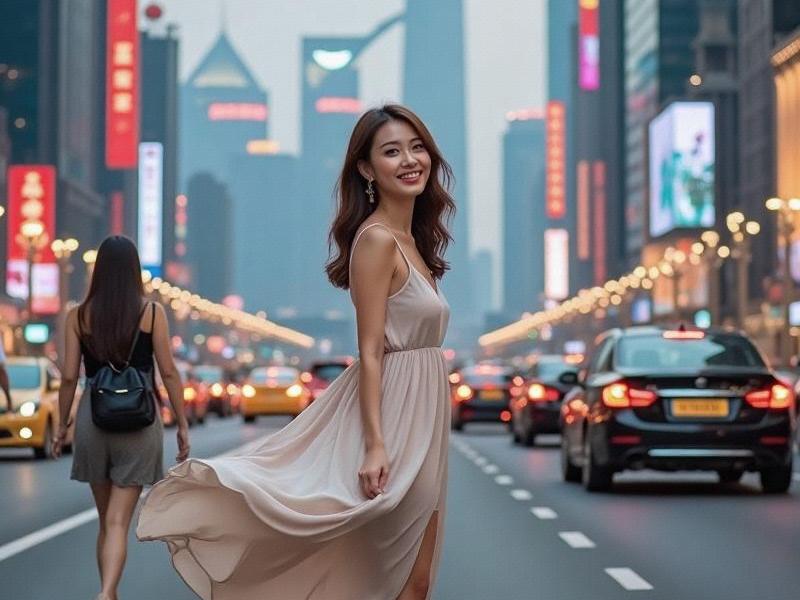This investigative report explores how Shanghai's premium entertainment venues have transformed from simple nightclubs into sophisticated social hubs blending business, culture, and luxury experiences.

The glow of neon along Shanghai's Bund tells only part of the story about the city's thriving entertainment industry. Behind the facades of historic buildings and glittering skyscrapers, a new generation of ultra-premium entertainment venues has emerged, catering to Shanghai's growing class of affluent professionals and international visitors.
The numbers reveal a remarkable transformation. Shanghai now boasts over 280 high-end entertainment venues with annual revenues exceeding $1.2 billion, according to 2024 data from the Shanghai Commerce Commission. What were once simple KTV parlors and nightclubs have evolved into multi-concept entertainment complexes offering everything from jazz lounges to AI-powered mixology experiences.
At the forefront is Cloud Nine, a 58th-floor venue in the Pudong financial district that combines a Michelin-starred restaurant, cigar lounge, and panoramic cocktail bar. "We're not just selling drinks - we're selling exclusivity and connection," says managing director Vincent Lo. The venue's membership includes 60% CEOs and senior executives who use the space for high-level business networking.
新夜上海论坛
The technological integration is equally impressive. At Neo Lounge in Xintiandi, facial recognition grants VIP access while smart tables track drink preferences. "Our system learns your tastes and can recommend new cocktails based on your previous orders," explains tech manager Zhang Wei. The venue has become a testing ground for hospitality innovations later adopted by hotels across Asia.
Cultural fusion defines many establishments. The Dragon Phoenix Club in Jing'an district merges traditional Chinese opera performances with modern electronic music. "We're creating a new Shanghai sound that respects tradition while embracing global influences," says artistic director Mei Lin. The club's weekend shows regularly attract mixed crowds of local elites and expatriates.
上海龙凤419官网
The economic impact extends beyond the venues themselves. Premium entertainment has become a key driver of Shanghai's night-time economy, which now accounts for 18% of the city's consumer spending. Luxury brands like Louis Vuitton and Rolex increasingly partner with high-end clubs for product launches and exclusive events.
Regulatory changes have both challenged and stimulated the industry. Stricter noise ordinances and operating hour restrictions have forced venues to innovate, leading to the rise of "daylife" experiences - afternoon champagne brunches with live entertainment. "The regulations pushed us to be more creative," admits Bar Rouge owner Marc Nicholson.
上海龙凤419
Human stories abound in this glittering world. Former finance executive Lily Chen left her banking career to open a jazz club in the former French Concession. "Shanghai needed a sophisticated space for genuine music appreciation, not just bottle service," she says. Her venue now hosts Grammy-winning artists monthly.
Yet challenges persist, particularly in staffing. The shortage of skilled mixologists and hospitality professionals has led to intense competition, with top bartenders commanding salaries rivaling tech engineers. "Finding staff who understand both international standards and local preferences is our biggest hurdle," notes Peninsula Club manager James Wong.
As Shanghai prepares to host the 2026 World Hospitality Summit, its entertainment scene stands at a crossroads between luxury excess and cultural substance. What emerges may redefine how global cities approach nightlife and social spaces in the post-pandemic era.